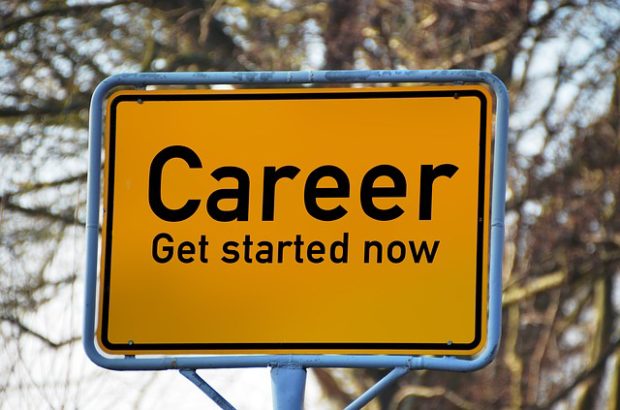Are You The “New” 20-Something? Why?
Consider the following statistics from The New York Times’ most recent buzz worthy article, “What is it About 20-Somethings?”
- One-third of people in their 20s move to a new residence every year.
- Forty percent move back home with their parents at least once.
- They go through an average of seven jobs in their 20s, more job changes than in any other stretch.
- Two-thirds spend at least some time living with a romantic partner without being married.
- And marriage occurs later than ever. The median age at first marriage in the early 1970s, when the baby boomers were young, was 21 for women and 23 for men; by 2009 it had climbed to 26 for women and 28 for men, five years in a little more than a generation.
Do these apply to you? They definitely apply to me.
- I have moved at least once a year since graduating college.
- I have moved back to my parents twice since graduating college.
- I am on job #3 since graduating college.
- I have lived with a boyfriend.
- At age 26, I don’t see marriage coming my way anytime soon.
Now consider this.
Sociologists traditionally define the “transition to adulthood” as marked by five milestones: completing school, leaving home, becoming financially independent, marrying and having a child.
In 1960, 77% of women and 65% of men had, by the time they reached 30, passed all five milestones. Among 30-year-olds in 2000, according to data from the United States Census Bureau, fewer than half of the women and one-third of the men had done so.
So now the big question is- WHY THE DELAY TO ADULT HOOD?
And then, of course, IS THIS A GOOD THING?
Some scholars are calling the movement “emerging adulthood.” A period of “identity exploration, instability, self-focus, feeling in-between and a sense of possibilities.” Sounds a lot like puberty to me.
For a variety of reasons, this topic of “emerging adulthood” has been heavy on my mind lately. I see “fear” lurking all around my peers and I’m starting to wonder why. Many of us 20-somethings are afraid to commit to a romantic partner, to a job, to owning a home or to making big purchases. Most of us are employed college graduates too. Isn’t that what we went to college for?
Many of us feel like we should be where our parents were when they were our age. But where were they? Yes, they may have had a mortgage and 2 kids in the suburbs but my guess is that they still struggled financially. I’d also bet that they weren’t working in their dream job either.
Are today’s 20-somethings being too idealistic? Are we waiting for the perfect man, the perfect job, the perfect home? Does that exist? Are we trying to avoid the mistakes our parents made in their lives? Are we afraid of divorce? Do we avoid trusting society?
Or, do we just have way too many damn options?
Since we were kids, we’ve been told by our parents that we can “be anyone and do anything.” Despite the plethora of excuses that could be made, The New York Times article states that 96% of surveyed 2o-somethings feel they “will get to where they want to be in life,” therefore indicating a high sense of possibilities and optimism.
But when given too many choices, it is inevitable that we will get stuck. Here are my thoughts.
4 Possible Root Causes of “Emerging Adulthood”
1. As a person who was raised on MTV, I think that the media has made success, glamour, riches and freedom look a lot more attainable than it actually is. Get on a reality show, and you’ve made it in life- no brains required. Turn on any TV station and you will get a false sense of reality- no hard work required. From “The Real World” to “The Bachelor” to “Jersey Shore” to “My Sweet 16,” you see beautiful “normal” people living it up with no mortgage, baby or “boring” adult responsibilities in sight. No one seems to work and you never see babies spitting up, life emergencies, overdrawn bank accounts or anything else “adult” like.
In this age, those who don’t take the traditional path to adulthood are rewarded by society. And the reward comes in Gen Y’s most highly regarded currency- recognition.
2. We’ve been raised in the information age; a time when the answer to any question is only a click away. We are used to instant gratification. Therefore, the idea of building something slowly over time (like a family or retirement account) is almost foreign to us. If it’s not quick and easy, we don’t mess with it.
3. Lastly, we’ve been inundated with information about how we should live our best lives. Take a walk through the magazine aisle and you’ll see what I mean…
Exercise! Eat anti-oxidants! Get rid of your roots! Fall fashion! Spring fashion! Get more education! Read books! Volunteer! Network! Start wearing wrinkle cream in your 20’s! Organize your home! Travel! Decorate your home! Stay up on the latest technology! Buy a home! Use my credit card! Get out of Debt! Check your Facebook! Write a blog! Invest your money properly! Budget! Lose weight! Get rich! Move up the corporate ladder! Cook healthy meals! Raise your family!
My head is about to explode just thinking about all of the things we are “supposed” to do on a daily basis. How would anyone have time to grow up if they were so caught up in doing what is “right” every day (i.e. what sells and keeps this country’s economy going).
Although our parents read compelling magazines too, my guess is that the # of magazines (and information in general) has more than tripled over the past few decades. Slowly society has turned up the heat on information overload and we didn’t even know what hit us- until suddenly there is a societal shift that’s left us all wondering.
4. Although college ended, the party never ended. I spent some time with my cousins from Italy last week and they brought up a fascinating point: in Italy, university is not all about beer! Although I’m being a bit sarcastic, I can personally say that in America, college never ends for many.
The bar scene has become an integral part of the 20-Somethings culture. We “deserve it.” We are “young” and we are “supposed to have fun.” Do we “deserve” wasting thousands of dollars a year (not to mention our brain cells and livers) on going to bars when we could be paying down debt or saving money? Well, we need to have some great pictures to post on Facebook and for many, the only humor is drunk humor.
In conclusion, it looks like I can’t answer my own question. I’m not sure if this shift to “emerging”/delayed adulthood is a good or a bad thing. We could sit here and argue all day about WHY it came about and if it is good or bad for society. All I know is that, for whatever reason, the statistics are true. Today’s 20-somethings are in no rush to pass the 5 milestones before 30.
We will continue to believe we can “do anything” and “be anyone.” Only time will tell how the delay to adulthood will affect our future children, retirement accounts and society as a whole. What do YOU think?




